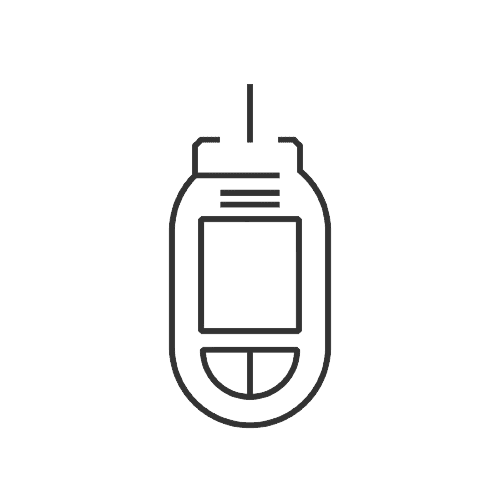healthcare nt sickcare
HOMA-IR Test (Using Insulin)
HOMA-IR Test (Using Insulin)
Couldn't load pickup availability
The HOMA-IR Test (Using Insulin) is a laboratory test offered by healthcare nt sickcare to evaluate insulin resistance in patients. Insulin resistance is a condition where the body's cells do not respond effectively to insulin, leading to elevated blood sugar levels. This can potentially increase the risk of developing type 2 diabetes, heart disease, and other health complications.
The HOMA-IR Test (Using Insulin) utilizes the Homeostatic Model Assessment (HOMA) method, a widely used and validated tool for measuring insulin resistance. This non-invasive test utilizes insulin levels in the blood to calculate insulin resistance and can be easily ordered by a healthcare provider.
Once a blood sample is taken from the patient, it is analysed in our state-of-the-art laboratory facilities by our skilled and certified technicians. We adhere to strict quality control procedures to ensure accurate and reliable results, and all of our labs are accredited by the National Accreditation Board for Testing and Calibration Laboratories.
The HOMA-IR Test (Using Insulin) is a laboratory test offered by healthcare nt sickcare to evaluate insulin resistance in patients. Insulin resistance is a condition where the body's cells do not respond effectively to insulin, leading to elevated blood sugar levels. This can potentially increase the risk of developing type 2 diabetes, heart disease, and other health complications.
The HOMA-IR Test (Using Insulin) utilizes the Homeostatic Model Assessment (HOMA) method, a widely used and validated tool for measuring insulin resistance. This non-invasive test utilizes insulin levels in the blood to calculate insulin resistance and can be easily ordered by a healthcare provider.
Once a blood sample is taken from the patient, it is analysed in our state-of-the-art laboratory facilities by our skilled and certified technicians. We adhere to strict quality control procedures to ensure accurate and reliable results, and all of our labs are accredited by the National Accreditation Board for Testing and Calibration Laboratories.
Share
Test Overview
Test Overview
Discover diagnostics at healthcare nt sickcare, the best pathology lab in Pune. From Aundh, we associate with NABL-accredited labs for precise lab testing Pune. Book blood tests near me now!
Why Choose Us
Why Choose Us
Trust healthcare nt sickcare in Aundh for affordable lab tests Pune. Our NABL-accredited lab partners ensure accuracy, perfect for your health checkup Pune needs.
Booking Process
Booking Process
Schedule with healthcare nt sickcare easily. Choose Rs130 blood test home collection Pune or visit our Aundh diagnostic centre Pune. Fast results from NABL labs.
Common Questions
Common Questions
Have queries? Contact healthcare nt sickcare at +91 97660 60629 for blood tests near me help. Our Aundh pathology lab near me Pune offers affordable lab tests Pune.
- Featured
- Most recent
- Highest ratings first
- Lowest ratings first
- Show photos first
Frequently Asked Questions
What We Offer
At healthcare nt sickcare, the best pathology lab in Pune, we deliver diagnostics with NABL-accredited precision. Based in Aundh since 2007, we serve Pune with affordable lab tests Pune for all.
-
Reliable Results
Our tests are processed by external NABL-accredited labs, ensuring accuracy for blood tests near me. Count on our Aundh diagnostic centre Pune for trusted outcomes.
-
Home Collection Option
Enjoy Rs130 blood test home collection Pune with healthcare nt sickcare. Our Aundh team makes lab testing Pune convenient and accessible at your doorstep.
-
Fast and Affordable
Get quick results from healthcare nt sickcare, your pathology lab near me Pune. Affordable rates with 10-18% off make us Pune’s top choice for health checkup Pune.
-
Book Now
Book your test at Collections with healthcare nt sickcare in Aundh. Call +91 97660 60629 for blood tests near me or affordable lab tests Pune support today!

Simplifying Healthcare
At healthcare nt sickcare, the best pathology lab in Pune, we simplify diagnostics from Aundh. Book blood tests near me or health checkup Pune packages with Rs130 blood test home collection Pune, backed by NABL-accredited labs. Quality care, made easy!
Stay in the Loop!
Join our email list for exclusive offers and the latest medical news.



